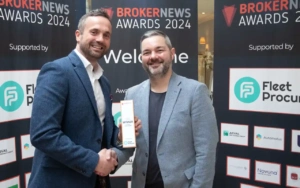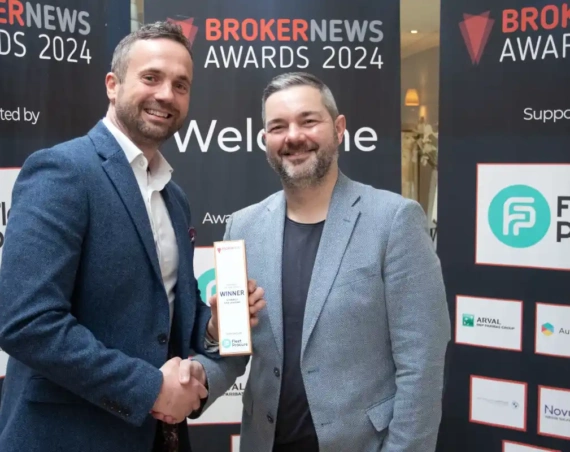ACCORDING to motor retail tech brand iVendi, allowing customers to self-serve their motor finance needs is the most effective route to Consumer Duty compliance.
Rob Severs, senior VP products and insight at iVendi (above), said experience was showing that a watertight self-serve process offered the best real-world route to ensuring the FCA’s requirements were being met.
“When the FCA first unveiled Consumer Duty, we looked at ways to achieve compliance using our technology. It quickly became clear that having a self-serve journey for customers would probably be the most suitable solution – and that is proving correct now that we are seeing dealers adopt these measures in practice.
“What self-serve allows you to do is define a carefully structured digital journey that you effectively know is compliant and contains no obvious weaknesses – and that is equally true whether customers are online or in the showroom.”
The alternative, he explained, was to allow a degree of human intervention in the process, introducing a wide range of variables that could result in non-compliance.
“For the biggest dealers, who have dedicated F&I staff, that approach might be a possibility but even then you’re asking people to have knowledge of perhaps hundreds or even thousands of motor finance product combinations. How can you expect that person to fulfil FCA Article 12 and choose the best outcome for an individual?
“Self-serve means you can demonstrably meet the requirements of the FCA’s four outcome areas and three cross cutting rules, minimising the chances of mis-selling, while creating a clear digital trail that can show compliance if you are challenged.”
A further advantage for dealers, Rob added, was that the amount of work that Consumer Duty created for dealers on a day-to-day basis was reduced to a minimum.
“If you are attempting to use a human-based process, then there is a huge amount of information to record for every motor finance deal that you make and this would have to be done manually, noting every step of the process. Self-serve removes this need.
In fact, based on what we are seeing in the market, the real question is not to ask why dealers should self-serve but what they are using as an alternative? We see very few instances where other methods look set to produce the same level of compliance. Research from Deloitte suggests that only a maximum of 5% of UK car buyers carry out their motor retail journey entirely online, so what are dealers providing in the other 95% of instances and how are they ensuring that Consumer Duty is being met?
Rob Severs, senior VP products and insight, iVendi Tweet
Self-serve isn’t limited to online-only use, he explained, and with the right technology in place the same journeys can be offered in the showroom, ensuring all customers have gone through an identical process and that retailers have the same level of information recorded for every motor finance deal they make.
“If a customer is in your showroom, you can hand them an iPad, give them a cup of coffee and sit them in a comfortable seat to self-serve their finance journey. Your staff will be on hand to help with any questions they may have but you are also available to speak to other customers, maximising time and efficiency.”
A core product for iVendi customers in terms of delivering a compliant self-serve journey is Digital Deal, which allows a dealer to create and send a complete proposition for a specific car to a customer in a matter of moments providing a range of finance options, value added products, part exchange options and more. This can be done remotely or in the showroom.
“The potential buyer receives the Digital Deal and enters a compliant digital journey where they can ‘play’ with all the parameters and options at will and in their own time, while being provided with the information they need. This empowers them to make their own decisions and is very much Consumer Duty-friendly. A large part of our user base views it as a key means to meet their FCA responsibilities.”

Broker News Awards 2024 – the winners
The Broker News Awards 2024 – supported by Fleet Procure – produced outstanding winners, with Synergy taking the Broker of the Year title

Broker News Newsletter 24 April 2024
Catch up on the latest leasing broker news in the 24 April 2024 Broker News newsletter

Leasing broker fleet down, but BCH is rising: analysis of BVRLA broker survey H2 2023
Analysis of the BVRLA leasing broker survey for H2 2023 shows the broker fleet is down, but BCH is on the rise

Novuna Vehicle Solutions and Select Lease by Mobilize add support to the Broker News Awards
Novuna Vehicle Solutions and Select Lease by Mobilize add support to the Broker News Awards 2024, which takes place in London on 25 April

Guest list for the Broker News Awards 2024
The guest list for the Broker News Awards 2024 contains a great list of the 85 leasing brokers, funders, suppliers and OEMs attending

Leasys UK now offers comprehensive short term rental service
Leasys UK announces a comprehensive short-term rental service. Customers can choose from a diverse range of vehicles




